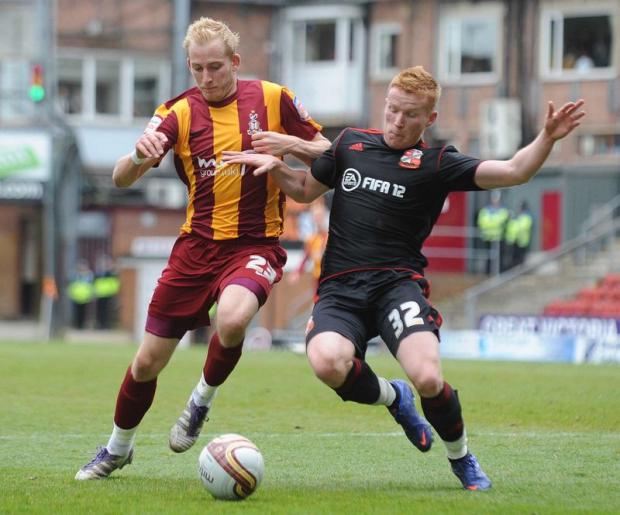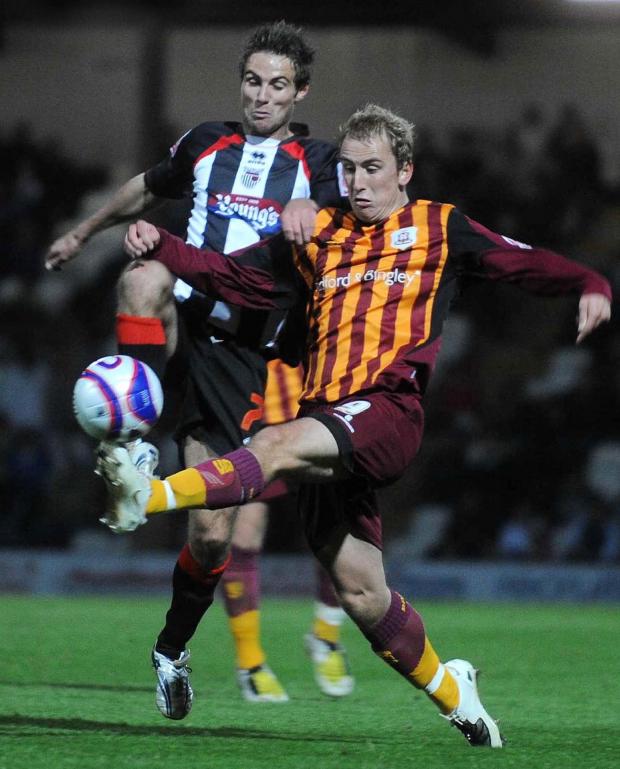“I wanted you to see something about her – I wanted you to
see what real courage is, instead of getting the idea that courage is a man
with a gun in his hand. It’s when you know you’re licked before you begin but
you begin anyway and see it through no matter what. You rarely win, but
sometimes you do…” – Atticus Finch, To Kill A Mockingbird
I love that quote. If my quote wall was an actual wall,
rather than just a series of haste scribbles on the back of a refill pad, that
one would be wedged firmly atop my diamond nine. I could write a whole essay on
what I love about To Kill A Mockingbird, but I don’t think it’s
difficult to work out why I picked that quote out for this article.
For me, that sums up City’s cup final. To a letter. In that
paragraph, you can find everything about that game against Swansea. In many
ways, there’s really no point in me writing this now. What I need to say is
right there. The score? It didn’t matter. Most of us – admittedly, not me –
knew the result weeks before a ball was kicked, even if we’d allowed ourselves,
for a moment, while we were whipped up in the middle of the media tornado, to
dream up a happier scenario. We didn’t win, but we had a go. We were under the
cosh, but we mustered a shot on target towards the end and celebrated like we’d
actually qualified for the Europa League. We felt hurt, dejected, betrayed and
ruthlessly deserted by the football Gods as a lonely Duke slumped off the pitch
to a veracious reception, but we kept the flags waving long into the night.
We saw it through no matter what.
Looking back on it is odd. It’s not so much that it was a
year ago – the time feels about right. It’s more that it happened at all. I’d long accepted that City would never reach a cup final. I’d dreamed of the play-offs, of my club reaching the national stadium, but even the JPT final, the most plausible of all the annual Wembley showpieces, had almost always seemed an utterly outlandish prospect, so how could I have possibly envisaged this? My brother’s team, Liverpool, were the side that blessed our house with grandeur and glory and major cup finals, so how had we stumbled into this world? What kind of mad foray had brought us here? Surely we would be rumbled, caught out, shown to be the impostors? I stepped off the coach tentatively, half expecting to look out along Wembley Way and see the blue and white of Chelsea, or the red and black of Manchester United. Seeing the claret and amber brought a wave of stunned relief. It seemed an hour or so before the Swansea clan rocked up.
When we were on the concourse, I was confident. Being at Wembley felt… right. We were there on merit. There was no reason to be scared. Even as I ran the pole of those now famous flags between my fingers (I genuinely didn’t believe they were free), I felt relaxed. ‘Claret and Amber’ blared from the speakers and I felt even more at home. Even when the teams lined up in their black tracksuits, I was bizarrely composed. When Swansea got their first, for crying out loud, I still thought we’d pull it back.
What I remember about that goal, though, is the pain. To this day, I’ve only seen the goals back once (my dad tactfully deleted the game from the Sky planner as soon as we got back from London, in a bid to protect me from some semi-repressed memories), but I can recall someone losing their marker and knowing the worst was to come. Dyer prodded. Duke stretched his arm to the side. McArdle threw himself forward. But that was it. Dyer celebrated in front of us as we struggled to believe City were trailing. An ebb of doubt flickered in my mind and, for the first time, I genuinely feared for the result. This wasn’t a part of the dream.
Five goals against, a red card and one meek shot on target was never part of the dream. One foray forward was never part of the dream. Watching City chase shadows for 90 minutes, recklessly made human and demoralised before our eyes, was a concept dismissed at the drawing board. But I couldn’t have been prouder.
Because we saw it through no matter what.
In that final half an hour, I didn’t want to be anywhere else. As I stood up and waved my flag, nothing else on the pitch mattered. I knew most of my friends would have turned off their televisions by now, but some would still be watching – and this is what they would be seeing.
Us. Here. Trapped in this moment.
In that period, I felt more affirmed than I ever have as a football fan. We stood, unified, united, together, the vocal and proud – so, so proud - personification of the mantra and mentality that had carried the team since Burton.
It’s only a cup.
At the time, though, it hurt. I burst into tears in the stands, sobbed away in the toilets, sighed all the way back to the coach. Women in the queue scowled at me, muttered those words of consolation that never actually offer any consolation – “It’s only a game”. I thought back over the months of media coverage and blasted fate for not giving us what we’d been rightly entitled to – reality, it seemed, bites hard. It was a selfish way of looking at the cup run, but I feared my time supporting City had already reached its apex; that the next few games would be the hangover, some desperate, contrived attempt to rekindle the magic of something that would never happen again. I slipped into the darkened Wembley night ironically humming ‘Premier League? You’re Having A Laugh!’, not particularly thinking anything other than that I had to keep my emotions in check or risk my mum would veto my plea for play-off tickets should City make the season finale. My auntie reminded me I had the bread and butter delight of Dagenham and Redbridge to look forward to just days after. The elitist part of me died inside.
And then the coach driver tipped me over the edge by playing Emeli Sande, which is the last thing you want to hear (after Adele) when you’re stuck behind 20 coaches in a London car park and wallowing in the self-pity that comes with witnessing your team fall victims to the heaviest cup final defeat of all time.
You rarely win, but sometimes you do.
And we did. We were winners by just reaching that stage. A cup final? We’ll never dp that again. Swansea might. Liverpool will. Chelsea, Manchester United and Manchester City - easily. A Championship team? Maybe. But someone from the fourth division? No chance. That’ll never, ever happen again. The cup final has become the preserve of the elite once more.
A cup final. And I was there. I’ll have to put up with some stick at school tomorrow, and this car park will undoubtedly take an age to get out of, but I was there. I was at Wembley. I was waving a flag. I was there when Gary Jones tamely flashed the ball towards goal. I was there on the day that Bradford City reached a major cup final.
I was there when we made history.






